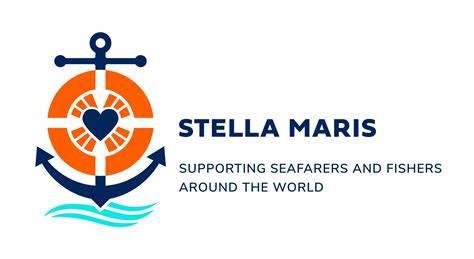Stella Maris urges UK authorities to enforce prosecutions of abusive fishing employers
Maritime welfare charity Stella Maris has insisted that the Home Office must do more to protect fishers following a BBC expose of historic cases of modern-day slavery aboard fishing vessels operating in UK waters from Scotland.
BBC One Scotland this week aired a documentary which accuses a Scottish fishing company ‘TN Trawlers’ of modern-day slavery and people trafficking. Several former TN Trawlers workers were interviewed for the documentary ‘Slavery at Sea.’ The BBC said between 2012 and 2020, the UK Home Office officially recognised 35 individuals from the Philippines, Ghana, India, and Sri Lanka as victims of modern slavery after their cases were referred for review. These workers had been employed by TN Trawlers owned by the Nicholson family and headquartered in Annan, a small town on Scotland’s southern coast.
Stella Maris CEO Tim Hill said the Charity has been supporting fishers caught up in slavery and labour exploitation for over ten years, providing humanitarian and pastoral support, including shelter, food, clothing and financial assistance, as well as signposting them to other organisations for legal and professional advice. He said that while the vast majority of fishing companies looked after and treated their employees well, those victims identified were invariably from developing countries and were suffering at the hands of a minority of unscrupulous employers. He said the Charity has reported several cases to the police over the years, but found prosecutions ‘painfully slow’, with fishers left in limbo in the UK while their cases are assessed. He said the Charity is providing continued support to mistreated fishers in a small number of ports across the UK.
“We are delighted to see the BBC broadcast this programme bringing some much-needed awareness of a deeply troubling issue,” he said.
“Stella Maris is engaged with a number of agencies in calling for greater urgency in dealing with cases. It is unacceptable to allow these cases of slavery to drift for years on end. It is sending all the wrong signals to rogue employers that think they can behave with relative impunity. Some fishers are stuck in the UK for years, not seeing their families while they wait for justice that may or may not come. A successful prosecution is necessary to deter appalling and illegal mistreatment of fishers.”
“This is an invisible crime, taking place out of sight at sea,” he said. “The authorities and welfare organisations must get better at recognising what modern-day slavery is, reporting it and supporting swift criminal prosecutions against those few bad operators.”
Mr. Hill said Stella Maris has and continues to provide care for a small number of fishers who have fled their vessels.
“I am in awe of the exceptionally hard work and commitment that my chaplains and volunteers have invested in supporting these people, often going over and above the call of duty, and for that I am humbled and extremely grateful” he said. Due to ongoing legal process, the Charity is unable to name the men or the accused.
“Escaping the vessel is the last resort for fishers who are terrified of losing their ability to work, so we still do not know the size of the problem among the 2500 or so foreign fishers in the UK,” he said. “And while Stella Maris and our sister charities provide much-needed welfare and financial support for fishers who have escaped, it is critical that law enforcement agencies do more to tackle fisher abuse and slavery, which may require more investment to reinforce their people working tirelessly on the frontline.”
Stella Maris is due to publish its first report on Modern Day Slavery at Sea in Britain later this year.

https://stellamaris.org.uk/

